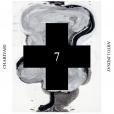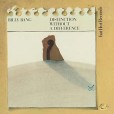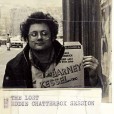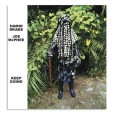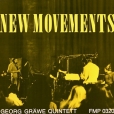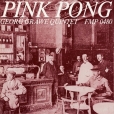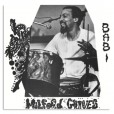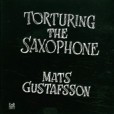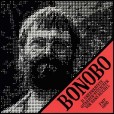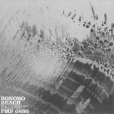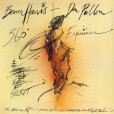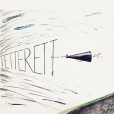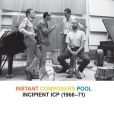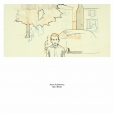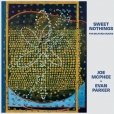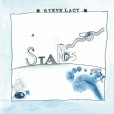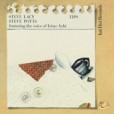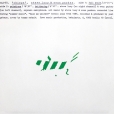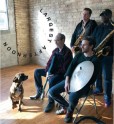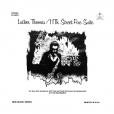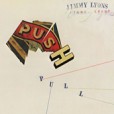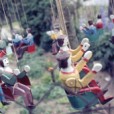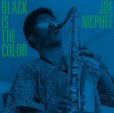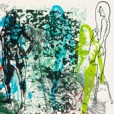Your basket is empty

Hans Reichel
Wichlinghauser Blues
Corbett Vs Dempsey
‘Originally released on FMP in 1973, the debut album by this legendary German guitar improviser and instrument inventor is a resonant and hilarious document of the nascent genius recording his peculiar and wondrous music alone in a studio. Acoustic and unfiltered electric guitars turned back into the supremely malleable instruments they were before they’d been firmly encoded as tools for rock or pop or jazz. Reichel uses a homemade 11-string guitar (with three pickups) for all the tunes except the first one. Reichel is like an improvising Harry Partch, investigating the genesis of lute music.’
The violinist’s first solo record, originally released on Hat Hut in 1980. A mixture of his own compositions, extrapolated at length in an intimate live concert, as well as traditional and improvised material. Remastered from original tapes and augmented by newly discovered recordings from the same concert. Great to hear Giuseppi Logan on here, briefly in from the cold.
‘The session somehow consolidated their shared energy in an unexpected way — the drummer’s incredible warmth and sense of buoyancy, the saxophonist and trumpeter’s preternatural musicality and quest for social justice. The recording started with McPhee reciting words by Harriett Tubman, resulting in the title track; Drake’s support was an achingly slow Max Roach-like beat. From this inspired, inspiring starting point, the twosome frolicked through a rich program, McPhee donning tenor and alto saxes, and pocket trumpet, Drake turning momentarily to the frame drum. Each musician contributes an introspective solo track. McPhee at one point plays trumpet into an open gong, which gives him otherworldly overtones, a sort of acoustic version of electric Miles…’
His 1976 debut, for FMP.
‘A classic hard-bop configuration with trumpet, saxophone, and rhythm section. Though some vestiges of that hard-bop feel permeate the music, it’s been fractured and expanded in its ambitions to include post-bop, freebop, free jazz, and free improvisation, all with an overall set of structures that betray Gräwe’s deep interest in contemporary classical forms. It is an audacious debut, one of the most thrilling jazz-related European outings to emerge from the FMP program. Tenor and soprano saxophonist Harald Dau is spectacular, reminiscent in places of the great Gerd Dudek’s work with Manfred Schoof Sextett — tough as nails, free within a blues-oriented context, totally inventive. He’s matched by lithe trumpeter Horst Grabosch, and Gräwe’s rhythm team is impeccable, with Hans Schneider’s bass and Achim Kramer’s drums. The album kicks off with a 22-minute-long rollercoaster ride written by Gräwe, and continues with two more long tracks by Dau, all of them featuring thrilling interplay and brilliant tunes.’
‘The same band as New Movements hit the stage a year and a half later, again for FMP, recording Pink Pong. Even more adventurous and tightly wired, this version of Gräwe’s fivesome plays more concise compositions, a total of eleven of them, spread out almost evenly amongst band members. The resulting album is one of FMP’s absolute classics, simultaneously a nod at precursors like Alexander von Schlippenbach’s early groups and Manfred Schoof’s killer mid-sized ensembles, but also indicating a new path for a younger set of players. Steeped in a love of folks like Lennie Tristano and Steve Lacy, the band’s points of reference were diverse enough to make them stand out against some of the more exclusively hard-blowing Germans of the era.’
‘The long-awaited first reissue of one of the most legendary albums in the history of free music. Recorded live in concert in 1976, when Graves’ trio with saxophonists Arthur Doyle and Hugh Glover was at the height of its powers, Bäbi is a testament to the absolutely unique approach the drummer had established for himself. He had reconfigured the drum kit, removing the second heads on all the drums and replacing the snare with two toms, which allowed him a much more nuanced sense of indirectness in his multi-directional adventures in time. The track Ba remains one of the most astonishing feats of percussion alchemy ever waxed, as funky as ten slap bassists and as free as an exploding grenade. Doyle and Glover are incendiary, too, inspired by Graves to new and shocking heights of achievement, their hoarse cries and whistling split-tones carried to thrilling plateaus on the energy of Graves’ hands and feet.
‘In 2017, Graves discovered a previously unknown tape in his archives featuring the same trio at its inception, in home recordings made seven years earlier in 1969. Graves pummels a huge gong while Glover plays an instrument that, after sounding like none ever known, turns out to be bass clarinet. Extreme music recorded up close and very hot, it is among the most searing sessions never heard. Until now.’
In the view of Robert Crumb (who did the lettering for the cover). Tenor, baritone, electronics, music box. Great repertoire — Ellington, Ayler, Lars Gullin’s fabulous Danny’s Dream — done charged, lyrical justice.
His second LP, originally released by FMP in 1976. ‘Microtonal string investigations still beguiling and fresh four decades later.’
‘Subtitled ‘some more guitar solos’; his fourth and final record of solo guitar works. Next Reichel would turn much of his attention to the bowed wooden-tongued instrument he created called the daxophone. Reichel recorded the six tracks at his home in Wuppertal in April, 1981, and in the process made what might be his masterpiece. These are not just some more guitar solos. Concentrating largely on acoustic guitar with no frets as well as his electric pick-behind-the-bridge guitar, he transforms tones into crystalline formations — patience with resonances, attention to silence, formation of symmetries around a common sonic point, jetting notes that arc and spread and then hover. One might look for other references to describe what Reichel is up to — the magic of Terje Rypdal, the aura of early William Ackerman, the eccentric multiple pickups of Fred Frith — but really this is unique in guitar repertoire. Reichel built his instruments as tools for improvised exploration, and then he dove deep into them, never so far as on tracks like Could Be Nice or the quivering Southern Monologue, or the two brilliant versions of the title track, Bonobo Beach. On Two Small Pieces Announced by a Cigar-Box, the titular box is bowed in a vocal manner that portends Reichel’s development of the daxophone.
‘A beautiful, essential document from one of the great outsider guitarists of all time.’
‘First issued in 1985 by Hal Willner’s Shemp label. With its unconventional lineup featuring steel drums, Latin percussion, and French horns, along with the co-leaders’ drum-kit and piano, it is among the most wonderful outings of its decade. Pullen was in top form, his inside-outside approach to the keyboard perhaps optimally heard on the exuberant Double Arc Jake, where the bright melody suddenly breaks into pieces, snapping back into miraculous shape. The band includes Hamiet Bluiett on baritone saxophone and Ricky Ford on tenor saxophone, along with Buster Williams on bass, Francis Hayes on steel pans, and a special brass section led by Sharon Freeman on the seventeen-minute Goree.’
John Tchicai, Peter Brötzmann, Gilius van Bergeyk, Misha Mengelberg, Peter and Han Bennink, Bert Koppelaar, Tristan Honsinger, Michel Waisvisz and Alan Silva. Originally released in 1977.
‘One of the landmark records of Mengelberg tunes, with classics like Rumboon and Alexander’s Marschbefehel, midpoint between Fluxus and Kurt Weill,Tetterettet presents a program full of musical surprises, intelligence, and ICP’s own brand of uproarious humor. A shaggy masterpiece, available here for the first time as a stand-alone CD, remastered from the original tapes, with Han Bennink’s original cover design.’
With Joshua Abrams, Hamid Drake, Jonathan Doyle, and Josh Berman.
‘At the beginning of 2017, Chicago vibraphonist Jason Adasiewicz brought a quintet into the hallowed halls of Electrical Audio, Steve Albini’s legendary studio, to record the soundtrack for a new film, Roy’s World: Barry Gifford’s Chicago, a documentary by Rob Christopher based on the Roy’s World series of short stories by Barry Gifford.
‘It’s really an ensemble effort, the spotlight on the gorgeous compositions and spacious sensibility, a perfect complement to Christopher’s fascinating, beautiful film, which has a noir vibe set in a fifties version of the Windy City conjured by means of vintage found footage, narration by Willam Dafoe, Matt Dillon, and Lilli Taylor, and Adasiewicz’s score. Check the balafon-led groove of Blue People, nodding to Fela… and bluesy, swinging charts throughout, with elements that might recall the post-hard-bop Blue Note records of folks like Andrew Hill, Sam Rivers, and Grachan Moncur III, Roy’s World is more than a great soundtrack record, it’s a killer programme of new tunes played by a monstrously strong band recorded and mixed at one of the world’s finest studios.’
Utterly captivating settings for soprano and alto saxophone — Lacy and Steve Potts terrifically on song — of Georges Braques’ bons mots. With Irene Aebi.
Recorded in 1979 by Jef Gilson.
The first CvsD re-release of Lacy’s full Hat Hut oeuvre, mastered from the original tapes.
‘Performed in Berlin at the Haus am Waldsee in July, 1985, it was every bit the chamber concert — super intimate and interactive, gorgeously recorded by FMP’s Jost Gebers in an ideal acoustic room. Rather than alternate between one and the other, Lacy and Parker explore middle-terrain the whole time, perhaps skewing a tad more Lacy’s funky-tuneful direction, becoming a single soprano entity made of fragments of sound sometimes accreting into perfectly imperfect lines. Two long tracks, Full Scale and Relations, are completed by a final four-minute coda aptly titled Twittering. Indeed, the whole program has the joyous interactivity of Paul Klee’s painting Twittering Machine: birds aligned on a line, proposing and picking up lines, nothing cruel or mean-spirited, free play all a graceful twitter.’
‘Alto saxophonist Luther Thomas was the loose cannon of the Black Artists Group milieu, with a raw freedom and keening, braying, gut-bucket blatancy funkily attuned to the no-wave crew. Besides recordings with Charles Bobo Shaw and Jef Gilson, he was a regular with James Chance and Defunkt, among others. (His collaborator here, the flutist Luther Petty was hot, too, for a brief moment in these years, playing with Lester Bowie’s Sho Nuff Orchestra.)
‘Recorded in 1978, soon after the pair moved from St Louis to NY, this is an emotional, volatile set of blues-drenched duets. The openness of mid-western AACM-style space-play, replete with little instruments, chasmically underpins evocations of the ferocity and unforgivingness of the Big Apple and its competitive loft scene.’
Cecil Taylor’s stalwart collaborator, in the best of his recordings as leader; recorded in 1978 and originally issued by Hat Hut as a 3-LP box set. ‘Five extended pieces, all by Lyons, with a working quintet: Lyons himself on alto, his wife Karen Borca on bassoon, Hayes Burnett on bass, Munner Bernard Fennell on cello, and Roger Blank on drums. Jolting, quicksilver free jazz with terse themes and brilliant interplay, the music is quintessential Lyons — searching, pliant and sincere. Remastered from the original tapes, this first reissue of Push Pull restores the original tracks — two of which were split into LP sides — to their true continuous length.’
‘Multi-track, multi-instrumental recordings — more compositional in nature than Sound On Sound — especially prized by the man himself. Over-dubbing builds and sculpts each piece, creating complete wind ensembles one track at a time. In 1974 and then again in a longer session in 1979, McPhee recorded himself in concise solo, duo, and tripartite self-communion, like a one-man-WSQ, his probing investigations and lyrical statements as incisive and insightful as those of his best-known recordings.’
‘Never-before-issued music from three very different settings in upstate New York, all recorded in the period running up to Nation Time.
‘First, from a year before, in the same hall at Vassar College, with soulful vibraphonist Ernie Bostic and a rhythm section of Tyrone Crabb and Bruce Thompson, both on Nation Time, performing a Trane-oriented set that included versions of Mongo Santamaria’s Afro Blue besides Naima, as well as McPhee-fave God Bless The Child. Deeply emotional and fiery playing with this unusual instrumentation — and it’s rare to find McPhee playing with a harmonically based instrument like vibes.
‘Also a quartet concert at a monastery in nearby New Windsor, with saxophonist Reggie Marks, playing a powerful combination of originals and the Patty Waters-associated traditional tune Black Is The Color.
‘Finally, three cuts document a more rough-and-tumble gig taped outdoors in the park at Poughkeepsie’s Lincoln Centre. A funky, bluesy, lowdown, explosive configuration, they feature vocals by one Octavius Graham, great drumming by Chico Hawkins, and Tyrone Crabb on electric bass.
‘This two-CD set has been lovingly transferred from original tapes in McPhee’s personal archives, and is augmented by newly discovered photographs of the concerts.
‘A spectacular deep dive into the pure magic of Mr. McPhee.’
Invigorating shots of spiritual jazz — the business, no sugar, no additives — in two versions from 1970, for tenor saxophone and space organ. Lovely artwork by Dick Higgins.
Fab.


